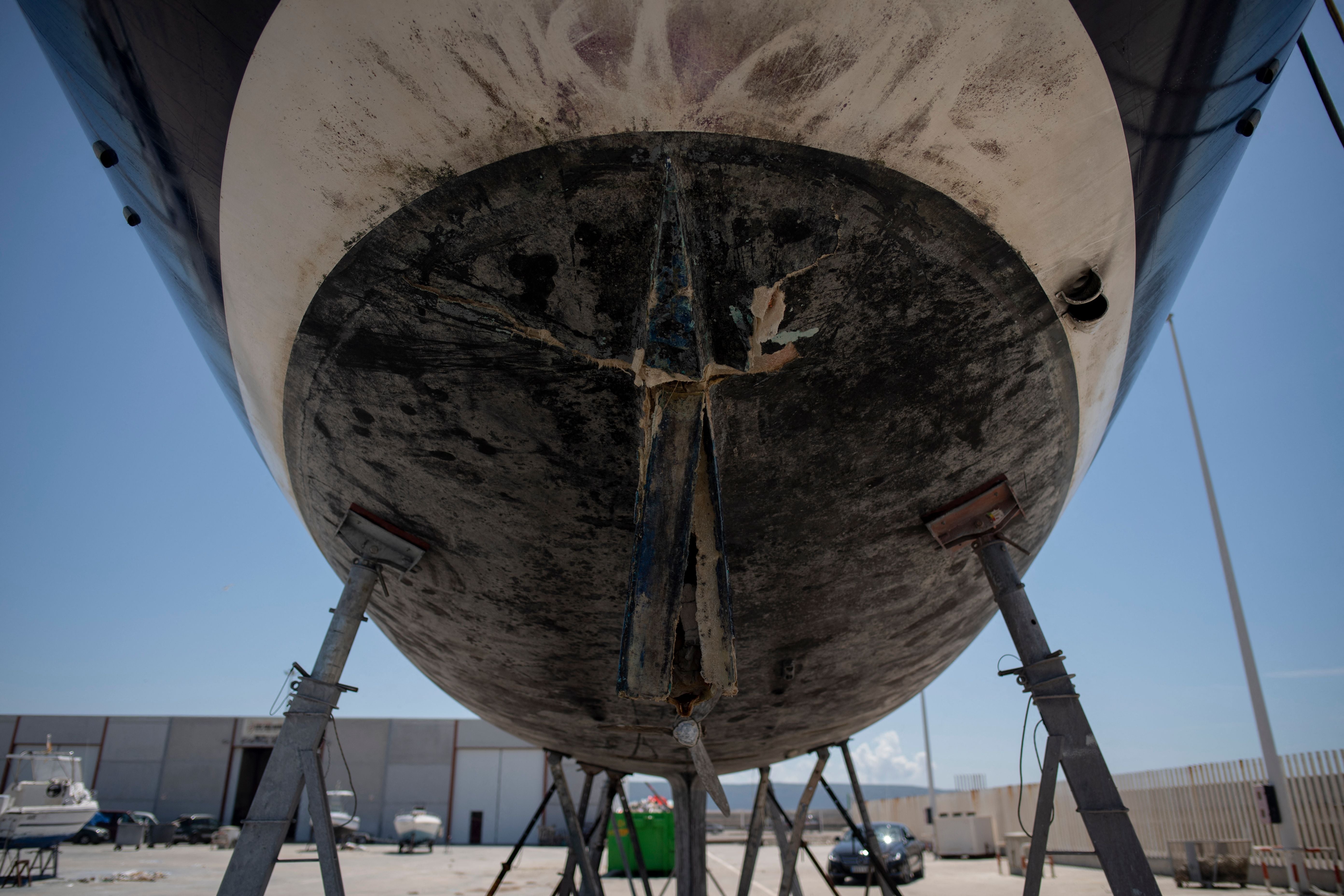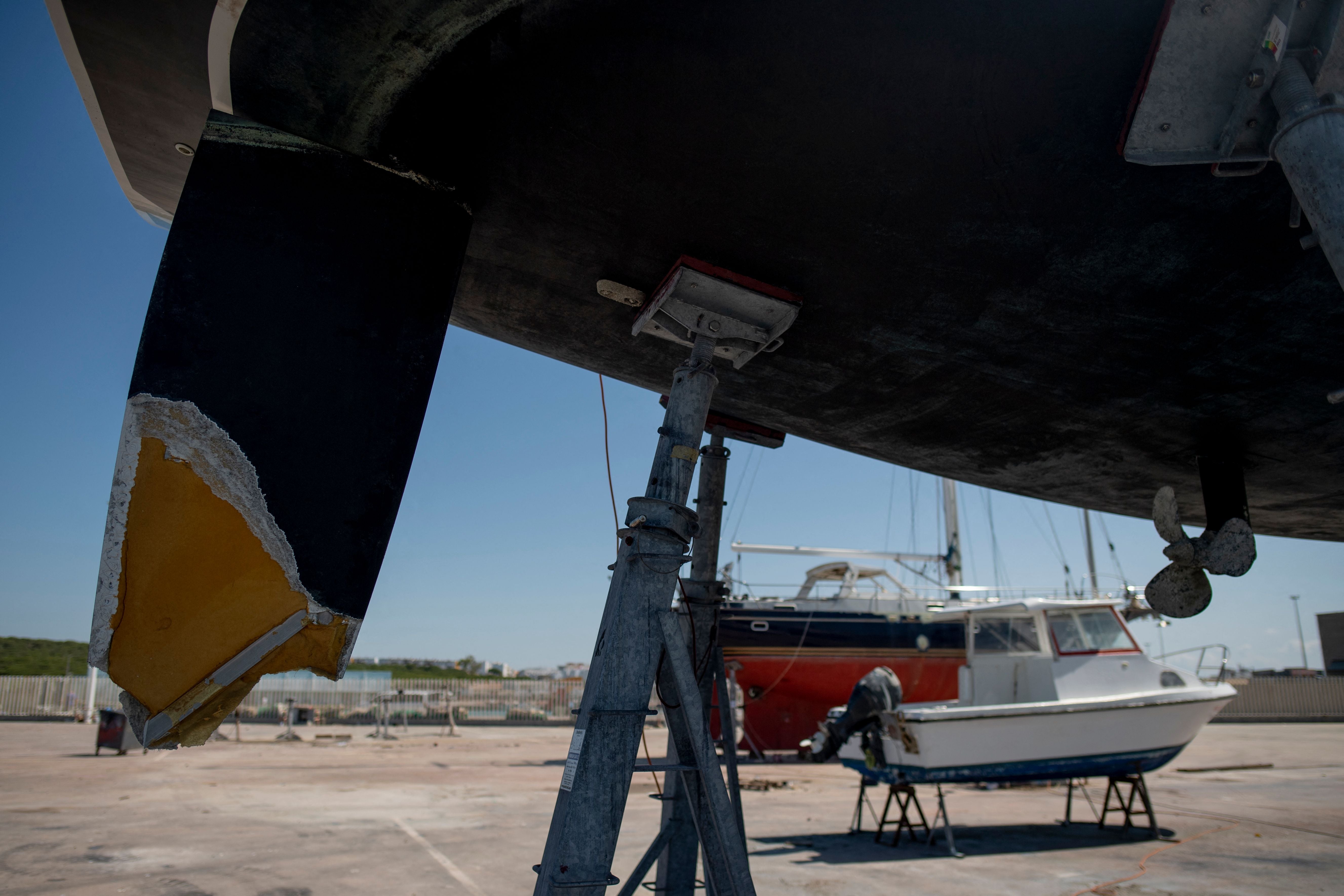Scientists may finally have answer to why killer whales keep attacking boats near Gibraltar
Young orcas are likely following a new ‘fad’ that they have picked up from peers, marine biologist says
Your support helps us to tell the story
From reproductive rights to climate change to Big Tech, The Independent is on the ground when the story is developing. Whether it's investigating the financials of Elon Musk's pro-Trump PAC or producing our latest documentary, 'The A Word', which shines a light on the American women fighting for reproductive rights, we know how important it is to parse out the facts from the messaging.
At such a critical moment in US history, we need reporters on the ground. Your donation allows us to keep sending journalists to speak to both sides of the story.
The Independent is trusted by Americans across the entire political spectrum. And unlike many other quality news outlets, we choose not to lock Americans out of our reporting and analysis with paywalls. We believe quality journalism should be available to everyone, paid for by those who can afford it.
Your support makes all the difference.Orcas ramming onto boats and sinking them in the Strait of Gibraltar may just be teenage killer whales playing around and following a behavioural trend, a marine biologist says.
Since May 2020 researchers have documented nearly 700 incidents of killer whales ramming into boats near the Iberian Peninsula.
The behaviour has perplexed sailors and scientists, with many suspecting that killer whales are teaching each other to attack boats passing by in the region.
Theories attempting to explain the strange behaviour have ranged from food scarcity – orcas treating the boats as competition for their preferred prey – and the sudden resumption of nautical activities after the pandemic.
Now, leading marine biologist Alex Zerbini, chair of the scientific committee at the International Whaling Commission (IWC) and a member of a working group put together by the Spanish and Portuguese governments, says the killer whale behaviour is most likely to be a new “cultural tradition” without an obvious purpose.
In other words, the orcas may just be following a new “fad,” scientists now suspect.

“Different populations often have distinct dietary specialisations maintained by cultural transmission, and these ‘ecotypes’ typically have a variety of persistent behavioural traditions related to their divergent foraging,” the marine biologists’ paper explains.
“Some populations may also develop unusual and temporary behavioural ‘fads’ and other idiosyncrasies that do not appear to serve any obvious adaptive purpose.”

Researchers highlight several strange behavioural practices observed among orcas at different periods over the years.
Citing one example, they say killer whales in the south pacific developed a habit of carrying dead salmon on the heads in 1987, which began with younger individuals and spread throughout the population despite having no obvious end purpose.
The behaviour “disappeared soon thereafter,” only to return in the summer of 2008 and then disappear once more.
In another case of strange behaviour that appeared and disappeared within a 20-year span, pairs of teenage and adult male orcas have been documented exhibiting a ritualised ramming or butting of their heads.
In recent incidents, most killer whales approaching damaged or sunk vessels have been juveniles that typically approached slowly as though they were trying to bump rudders gently with their snouts.
“There’s nothing in the behaviour of the animals that suggests that they’re being aggressive,” Dr Zerbini told The Washington Post.
“Not all interactions have ended in vessel damage,” the scientists stressed.
Researchers suspect this new behaviour among orcas may well disappear at some point, and could appear again at a later time.
“As they play with the rudder, they don’t understand that they can damage the rudder and that damaging the rudder will affect human beings. It’s more playful than intentional,” Dr Zerbini said.
“It may be that the current fixation of Iberian killer whales with boats, and particularly their rudders, is such an ephemeral fad and that, should it suddenly cease, it might reappear at a later date.”
Join our commenting forum
Join thought-provoking conversations, follow other Independent readers and see their replies
Comments